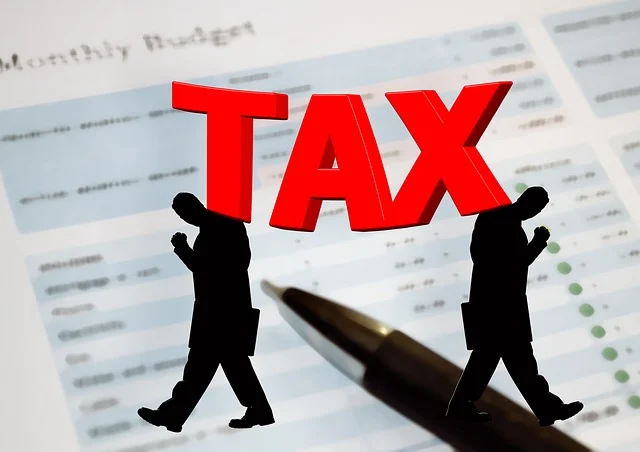Dutch Banking: Opening an Account as a Foreigner

The Netherlands is known for its efficient and well-regulated banking system, making it relatively straightforward for foreigners to open a bank account. Whether you’re moving to the Netherlands for work, study, or other reasons, having a local bank account is essential for managing your finances, receiving your salary, and paying bills. This guide provides a comprehensive overview of the process, requirements, and tips for opening a bank account in the Netherlands as a foreigner.
1. Why Open a Dutch Bank Account?
Opening a Dutch bank account offers several advantages:
- Convenience: A local account makes it easier to manage daily expenses, pay bills, and receive your salary.
- Lower Fees: Using a Dutch bank account for local transactions can help you avoid international banking fees.
- Access to Services: Many Dutch banks offer online banking, mobile apps, and other services that simplify financial management.
- Integration: Having a local bank account is an important step in integrating into Dutch society and establishing financial stability.
2. Types of Bank Accounts in the Netherlands
Dutch banks offer various types of accounts to meet different needs:
- Current Account (Betaalrekening): A standard account for everyday transactions, such as receiving your salary, paying bills, and making purchases.
- Savings Account (Spaarrekening): An account for saving money, often offering higher interest rates than a current account.
- Joint Account (Gezamenlijke Rekening): An account shared by two or more people, commonly used by couples or families.
- Student Account (Studentenrekening): Special accounts for students, often with lower fees and additional benefits.
3. Major Dutch Banks
Several major banks in the Netherlands cater to foreigners, offering services in English and providing support for expats:
- ING: One of the largest banks in the Netherlands, offering a range of accounts and services for expats.
- ABN AMRO: Known for its expat-friendly services, including English-language support and online banking.
- Rabobank: A cooperative bank with a strong presence in rural areas, offering various account options.
- SNS Bank: A smaller bank with competitive fees and services tailored to individuals and small businesses.
- Bunq: A digital bank that offers fully online accounts, ideal for tech-savvy expats.
4. Requirements for Opening a Bank Account
The requirements for opening a bank account in the Netherlands may vary slightly between banks, but generally include the following:
- Valid Passport or ID: A valid passport or national ID card is required for identification.
- Residence Permit: Non-EU/EFTA citizens will need a valid residence permit.
- BSN Number: The Burgerservicenummer (BSN) is a unique identification number issued to residents in the Netherlands. It is essential for opening a bank account.
- Proof of Address: Some banks may require proof of address, such as a rental contract or utility bill.
- Employment or Study Details: Proof of employment (e.g., employment contract) or study (e.g., enrollment letter) may be required.
5. Steps to Open a Bank Account
The process of opening a bank account in the Netherlands typically involves the following steps:
- Choose a Bank: Research and compare the services, fees, and benefits offered by different banks to find the one that best suits your needs.
- Gather Required Documents: Ensure you have all the necessary documents, including your passport, residence permit, BSN number, and proof of address.
- Schedule an Appointment: Some banks may require you to schedule an appointment to open an account, especially if you need in-person assistance.
- Visit the Bank or Apply Online: Depending on the bank, you may be able to apply online or need to visit a branch in person.
- Complete the Application: Fill out the application form and provide the required documents. Some banks may also ask for additional information, such as your employment or study details.
- Verify Your Identity: You may need to verify your identity through an online process or by visiting a branch.
- Receive Your Bank Details: Once your application is approved, you will receive your bank account details, including your IBAN number.
- Activate Your Account: Follow the bank’s instructions to activate your account and set up online banking.
6. Online and Digital Banking Options
For expats who prefer a fully digital experience, several online and digital banking options are available:
- Bunq: A fully digital bank that offers easy account setup, multi-currency accounts, and a user-friendly app.
- N26: A German-based digital bank that operates in the Netherlands, offering free accounts and low fees.
- Revolut: A UK-based digital bank that provides multi-currency accounts, budgeting tools, and international transfers.
7. Tips for Expats Opening a Bank Account
To ensure a smooth process, consider the following tips:
- Research and Compare: Take the time to research and compare different banks and account options to find the best fit for your needs.
- Prepare Your Documents: Ensure you have all the necessary documents ready before starting the application process.
- Check Language Support: If you’re not fluent in Dutch, choose a bank that offers English-language support and services.
- Understand Fees: Be aware of any fees associated with the account, such as monthly maintenance fees, transaction fees, and ATM fees.
- Set Up Online Banking: Take advantage of online banking and mobile apps to manage your finances conveniently.
8. Common Challenges and Solutions
While opening a bank account in the Netherlands is generally straightforward, expats may encounter some challenges:
- Language Barrier: Some banks may have limited English-language support. Choose a bank known for its expat-friendly services.
- Proof of Address: If you don’t have a permanent address yet, some banks may accept a temporary address or a letter from your employer.
- BSN Number: You need a BSN number to open a bank account. If you don’t have one yet, you can apply for it at your local municipality (gemeente).




